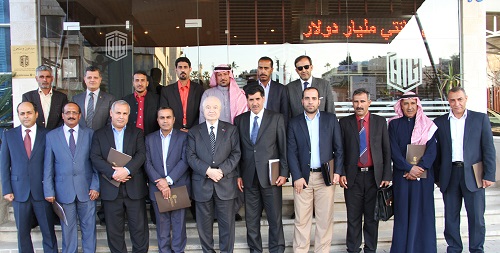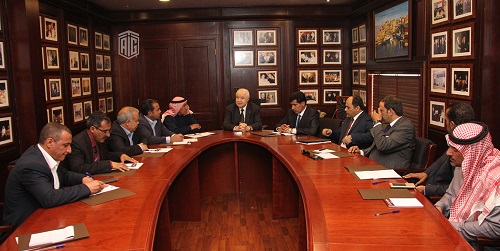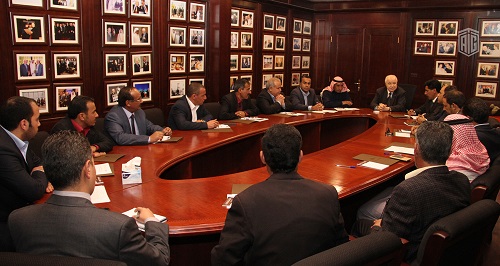Development of Jordan Badia Committee at Talal Abu-Ghazaleh Knowledge Forum Discusses Badia Development Plan.
14 Jun 2017 AMMAN – The Jordan Badia Committee, one of Talal Abu-Ghazaleh Knowledge Forum’s, held its starting meeting to prepare a development plan for the Jordanian Badia regions; a plan that is to includes a number of initiatives and suggestions for sustainable development in the targeted Badia areas. HE Dr. Talal Abu-Ghazaleh stressed the need for introducing specific proposals for practical, doable and sustainable projects. He also called for the evaluation of the current condition and needs of the existing knowledge stations in the Badia areas so that they can be better equipped and enabled to perform at full capacity by the Talal Abu Ghazaleh Organization as part of its social corporate responsibility program.
HE Dr. Talal Abu-Ghazaleh stressed the need for introducing specific proposals for practical, doable and sustainable projects. He also called for the evaluation of the current condition and needs of the existing knowledge stations in the Badia areas so that they can be better equipped and enabled to perform at full capacity by the Talal Abu Ghazaleh Organization as part of its social corporate responsibility program.On his part, Badia Committee head, Mr. Oudeh Al Mashan, affirmed that the highly qualified committee members, representing north, middle and south Badia regions, and including academics and economic experts are up to the task and are capable of evaluating the situation and suggesting appropriate solutions to the existing problems at all levels.
 During the meeting the committee members reviewed facts and figures relating to the Badia. They reiterated the fact that although the Badia region covers approximately 85% of the total area of Jordan, with approximately one million residents, the average monthly family income is less than JD400. They also noted that the Jordan Badia didn’t get the required authorities’ attention for development.
During the meeting the committee members reviewed facts and figures relating to the Badia. They reiterated the fact that although the Badia region covers approximately 85% of the total area of Jordan, with approximately one million residents, the average monthly family income is less than JD400. They also noted that the Jordan Badia didn’t get the required authorities’ attention for development.The Committee agreed to submit a number of initiatives and suggestions for development projects, emphasizing that the quality of education in some areas is very poor and that schools need to be rehabilitated in terms of infrastructure and logistic services. They also stressed the importance of investment in all fields mainly in solar energy and water.
 The Committee identified the main sectors that need to be further reviewed; mainly knowledge education, the socio-economic sector, the energy sector, water and environment, and the digital library; with an emphasis on employing technology for handling each sector’s issues.
The Committee identified the main sectors that need to be further reviewed; mainly knowledge education, the socio-economic sector, the energy sector, water and environment, and the digital library; with an emphasis on employing technology for handling each sector’s issues. 




